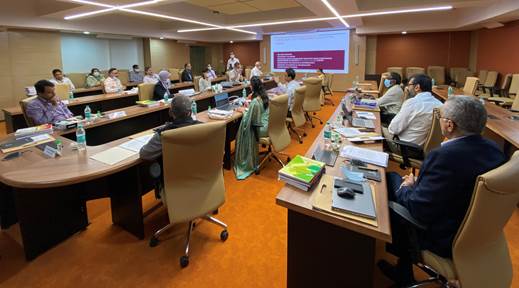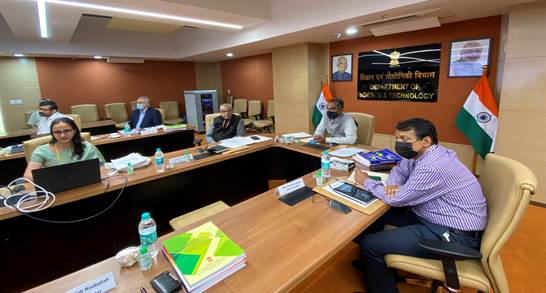Capacity building can make India global leader in Good Laboratory Practice: DST Secretary
Secretary, Department of Science and Technology (DST), Dr S Chandrasekhar, highlighted that with Government’s commitment and emphasis on further capacity building on Good Laboratory Practice (GLP) in the country, India is destined to be a global leader in the area.
“On March 3, 2011, India received the status of full adherence to the Mutual Acceptance of Data (MAD), which gave global recognition to India’s non-clinical safety data by tremendously augmenting its credibility and acceptability across the globe,” said Dr Chandrasekhar at the opening meeting of the evaluation team from OECD, which is visiting the country for On-Site Evaluation (OSE) of the procedures and practices of the National GLP Program.

MAD is a set of decisions that harmonises national approaches to regulation of laboratory practices developed by the Organisation for Economic Co-operation and Development (OECD), an international organisation that works to build better policies. The MAD status has not only boosted the confidence of Indian GLP Testing Facilities (TFs) but also led to removal of technical barriers to trade,” Dr Chandrasekhar pointed out.
The National GLP Compliance Monitoring Programme of India is implemented through the National GLP Compliance Monitoring Authority (NGCMA), under the administrative control of DST with Secretary, DST as its Chairman. Compliance Monitoring Authorities (CMAs) of OECD member and fully adherent non-member countries are evaluated as per OECD’s guidance document on ‘Procedures and processes for the on-site evaluation of National GLP compliance monitoring programmes’. The guidance document mandates On Site Evaluation (OSE) of GLP Compliance Monitoring Programs of OECD countries and full adherent non-member countries every 10 years through Mutual Joint Visits (MJV).
Dr Chandrasekhar informed that currently 52 test facilities in the country have been certified by NGCMA as GLP Compliant, which includes 3 Government labs - NIPER (Mohali), Indian Institute of Toxicology Research, Lucknow and Central Drug Research Institute, Lucknow. “The spectrum of activities of Indian GLP TFs is wide, involving ten (10) types of chemicals/test items and nine (9) areas of expertise. The National GLP program has not only helped to build a network of GLP TFs in the country but also created a huge quantum of highly competent human resources,” he added.
Dr Akhilesh Gupta, Senior Adviser, DST said that the last OSE of Indian NGCMA was conducted in 2010. Based on the observations of the evaluation team, the NGCMA undertook an exercise to further enhance the robustness and transparency of the GLP inspections by rigorous training and evaluation of the NGCMA inspectors. “We look forward to this evaluation and to inputs from the team to further strengthen our compliance monitoring procedures,” he added.

Dr Ekta kapoor, Head, Good Laboratory Practices, DST briefed about the programme and its achievements and future plans.
The opening meeting was attended by Dr. Fadhilah Hasbullah, Senior Principal Assistant Director, Ministry of Health, Govt. of Malaysia (Lead Evaluator), Ms. Naoko Moritani, Deputy Director, Chemicals Evaluation Office, Environmental Health Department, Ministry of the Environment, Government of Japan, Dr. Yusuke Oku, Policy Analyst, Environment, Health and Safety Division, Environment Directorate, OECD and Dr. Yoshio Sugaya, Guest Researcher, National Institute for Environmental Studies, Japan (Observer) along with the NGCMA inspectors and officials from DST.
<><><><><>
SNC/RR